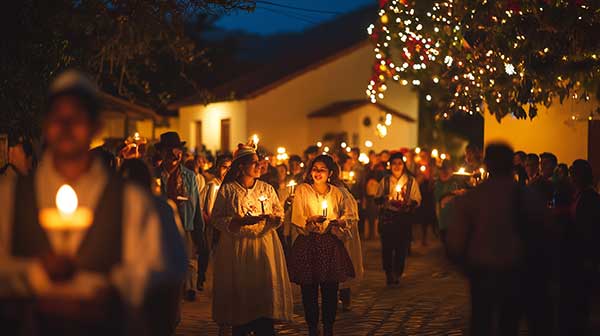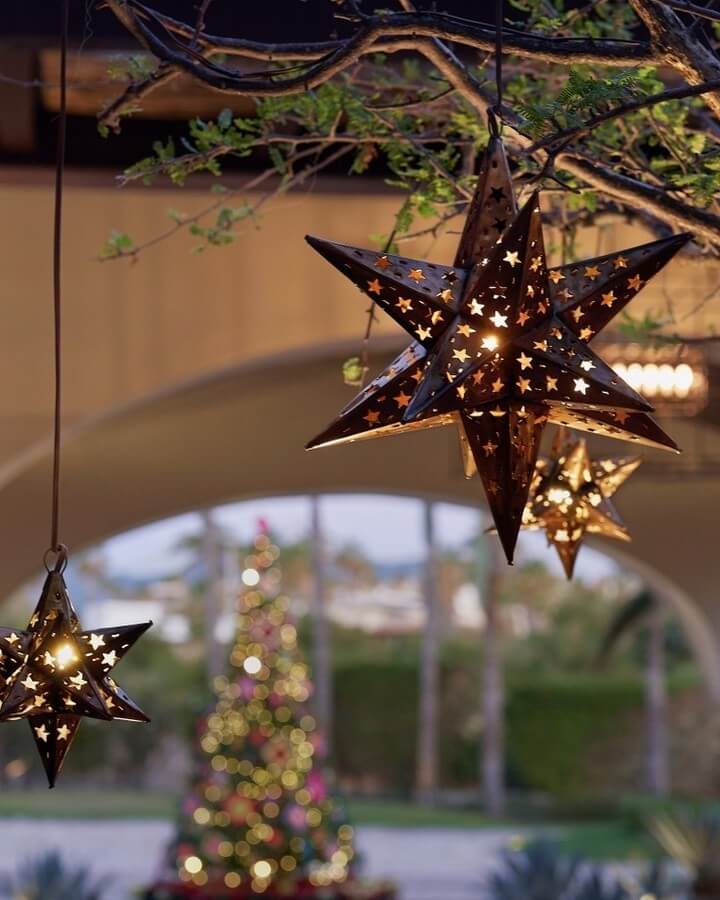Posadas in Mexico: A Beautiful Christmas Tradition
Las Posadas is one of the most cherished and vibrant Christmas traditions in Mexico. They offer a deep cultural and spiritual experience for families, communities, and visitors alike. This lively and festive custom celebrates the journey of Mary and Joseph as they searched for shelter in Bethlehem before the birth of Jesus. It’s a celebration of community, faith, and the spirit of giving, and it takes place every year from December 16 to 24.

The Meaning Behind Las Posadas and How It's Celebrated?
The word posada means “inn” or “shelter” in Spanish. The tradition of Las Posadas reenacts the biblical story of Mary and Joseph on their Journey to Bethlehem. Each evening from December 16 to Christmas Eve, participants gather to remember the couple’s struggle to find a warm place for Jesus’ birth.
Las Posadas is more than just a religious observance; it’s a time for friends, family, and neighbors to come together in unity, singing, celebrating, and reflecting on the true meaning of Christmas.
Every night of Las Posadas, a different home hosts the celebration. A procession of participants—often including children dressed as Mary, Joseph, angels, and shepherds—walks through the neighborhood, singing traditional songs as they seek entrance into the home (the “inn”). The group stops at each door and sings, asking for shelter. The homeowner, acting as the innkeeper, refuses them at first, creating a dramatic re-enactment of the biblical story.
After a few verses, the door is opened, symbolizing the welcoming of Mary and Joseph (and the Holy Child) into the home. The entire group enters, and the celebration continues with food, music, prayers, and sometimes a piñata for the children. This event is both religious and festive, mixing solemn reflection with joyous celebration.
The Songs of Las Posadas
One of the most special aspects of Las Posadas is the music. The traditional posada song is a call-and-response style chant, where the group of people outside sings for shelter, and the homeowner sings back, refusing entry. The lyrics vary, but they always tell the story of Mary and Joseph’s journey.
The final verses of the song welcome the Holy Family into the home and end in joyful celebration. Some of the most popular posada carols are:
- “En el nombre del cielo, os pido posada…” (In the name of heaven, we ask for shelter…)
- “Ya viene la vieja, ya viene la vieja…” (Here comes the old woman, here comes the old woman…)

Food, Drinks and Piñatas
No posada would be complete without delicious traditional foods and drinks. Families typically serve tamales, atole (a warm corn-based drink), pozole (a hearty soup made with hominy), and bacalao (salted cod). One of the favorites is ponche—a warm, spiced fruit punch made with ingredients like tejocote (a native fruit), apples, guavas, and cinnamon. These foods bring people together and provide warmth after the chilly night processions.
For children, one of the most anticipated parts of Las Posadas is the piñata. Traditionally, the piñata during Posadas represents the struggle between good and evil. Shaped like a star with seven points, the piñata symbolizes the seven deadly sins, and breaking it open represents the triumph of good over evil. Once the piñata is broken, candies, fruits, and small toys spill out, much to the delight of the children.
The End of Las Posadas: Nochebuena
Las Posadas culminate on Nochebuena (Christmas Eve), the most important night in the Mexican Christmas calendar. After the final Posada, families come together to celebrate the birth of Jesus. Many attend La Misa de Gallo (Midnight Mass), and a festive meal is shared. The celebration of Las Posadas, with its music, food, piñatas, and prayers, brings the warmth of community and faith to life in a way that is uniquely Mexican.


